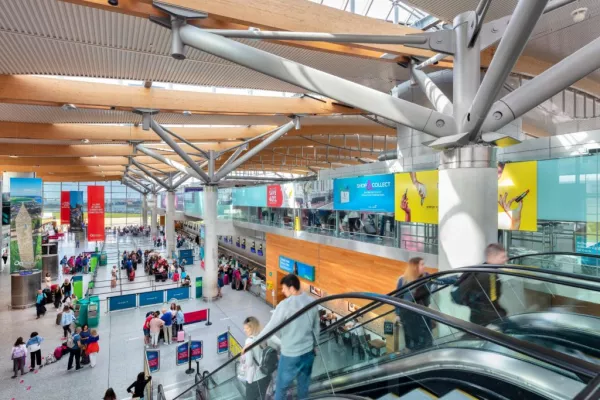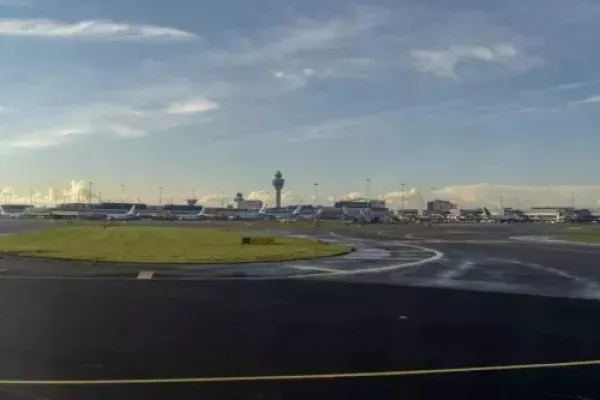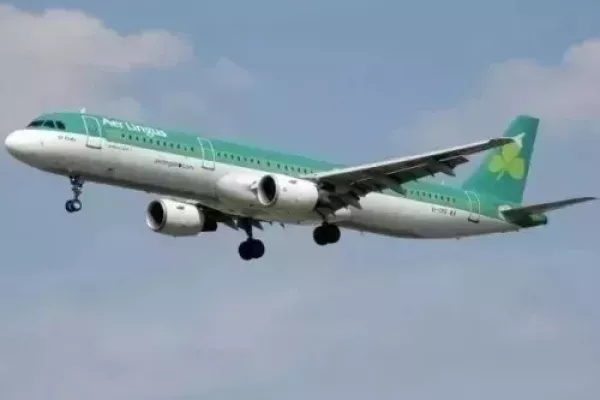Major oil companies must speed up the development of alternative fuels crucial to the aviation industry meeting its 2050 net-zero emissions target or risk losing out to businesses that will, airlines have warned.
Details
The airline industry requires huge investments in so-called sustainable aviation fuels (SAF), which are currently in short supply and far more expensive than conventional jet fuels.
"We are not going to accept excuses. Bottom line is if they are not going to do it, others will," said Willie Walsh, the head of the International Air Transport Association (IATA).
"This is a business opportunity. You no longer need to have oil in the ground to produce fuel. There are many feedstocks available to produce sustainable fuels," he told reporters at the end of a three-day airline industry meeting in Doha.
Commercial aviation contributes about 2% of global carbon dioxide emissions.
The development of SAF, made from feedstocks such as cooking oils and animal waste, is expected to make the biggest contribution to airlines achieving net-zero.
Future technologies such as electric and hydrogen-powered aircraft are still unproven and will likely take decades to replace existing aircraft if developed.
The airline industry's net-zero target is based on the production of 449 billion litres of SAF, or 65% of global airline fuel needs in 2050, compared to 125 million, or just 0.5%, last year.
Qatar Airways Chief Executive Akbar Al Baker said this week the net-zero target would be challenging for airlines to meet, in part due to the scarcity of SAF.
Many airlines have set a nearer-term target of 10% SAF usage by 2030. Meeting attendees Air New Zealand AIR.NZ, Virgin Australia, Korean Air 003490.KS and Hawaiian Airlines HA.O told Reuters they had the 10% target but sourced no SAF at present, though they are investigating options such as using it when refuelling in California, which has incentives in place that have encouraged SAF production.
"For 2030 the aim is 10%, but there are only eight years to go," said Junichiro Miyagawa, head of alliances and international affairs at Japan's ANA Holdings, which sources around 0.01% of its fuel needs from SAF at overseas ports.
"At present it is very, very high, the goals," he said when asked if the 10% target was achievable.
Oil company executives argue airlines are reluctant to commit to buying alternative jet fuels because of the higher price, which in turn makes it tough for them to make the investments needed to up production.
"We haven't seen a single airline coming to us saying I'll buy SAF no matter what," Shell Aviation President Jan Toschka told Reuters.
"How many billion dollars do you think the energy sector will invest without having some sort of predictability whether the demand is actually there?" he asked.
According to Toschka, SAF is currently two and half times more expensive than conventional jet fuel. He urged more airlines to set a target of 10% SAF usage and said he believed production would increase as the market grows in coming years.
IATA, the world's biggest airlines association, said airlines last year used all sustainable fuels available to them.
The airline industry typically operates on razor thin-margins and many carriers are still reeling from the pandemic.
But governments, lenders and companies that use corporate travel are pressuring airlines to reduce their environmental footprint to help meet their own climate targets.
The airline industry is also calling on governments to provide incentives to speed up production of sustainable fuels. IATA said that alternative fuel production could reach 30 billion litres by 2030 with government assistance.
Qantas Airways
Qantas Airways QAN.AX and Airbus AIR.PA on Sunday 19 June agreed to invest up to $200 million to develop a SAF industry in Australia, in a move they hoped would encourage the government to also take action.
News by Reuters, edited by Hospitality Ireland. Click subscribe to sign up for the Hospitality Ireland print edition.









